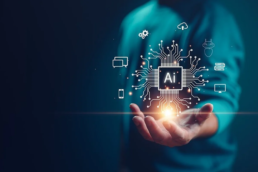Machine learning is rapidly transforming the enterprise software landscape. By automating tasks, improving decision-making, and personalizing experiences, machine learning is helping businesses to become more efficient, productive, and customer-centric.
In this blog post, we will explore the future of enterprise SaaS with machine learning. We will discuss the key trends that are driving the adoption of machine learning in the enterprise, and we will look at some of the ways that machine learning is being used to improve enterprise SaaS products.
Key Trends in Machine Learning for Enterprise SaaS
There are a number of key trends that are driving the adoption of machine learning in the enterprise. These include:
- The increasing availability of data: The amount of data that is being generated by businesses is growing exponentially. This data can be used to train machine learning models that can learn to make predictions and decisions.
For example, a large enterprise might generate terabytes of data every day from its customer relationship management (CRM) system, its product usage data, and its social media activity. This data can be used to train machine learning models that can predict customer churn, identify upsell opportunities, and personalize product recommendations.
- The falling cost of computing power: The cost of computing power has been falling steadily for many years. This has made it more affordable for businesses to deploy machine learning models.
In the past, businesses had to invest in expensive hardware to run machine learning models. However, today, it is possible to run machine learning models on cloud computing platforms, which are much more affordable.
- The growing maturity of machine learning algorithms: Machine learning algorithms have become more sophisticated in recent years. This has made them more reliable and accurate.
In the early days of machine learning, algorithms were often unreliable and inaccurate. However, over time, machine learning algorithms have been improved through a process of trial and error. As a result, today’s machine learning algorithms are much more reliable and accurate.
How Machine Learning is Being Used in Enterprise SaaS
Machine learning is being used in a variety of ways to improve enterprise SaaS products. Some of the most common applications include:
- Automating tasks: Machine learning can be used to automate tasks that are currently performed by humans. This can free up employees to focus on more strategic work.
For example, a customer service representative might spend a lot of time manually searching for customer records. However, a machine learning model could be trained to automatically search for customer records based on the customer’s name, email address, or phone number. This would free up the customer service representative to focus on other tasks, such as resolving customer issues.
- Improving decision-making: Machine learning can be used to improve decision-making by providing businesses with insights that were previously unavailable.
For example, a marketing team might use machine learning to predict which customers are most likely to respond to a particular marketing campaign. This information could then be used to target the marketing campaign more effectively.
- Personalizing experiences: Machine learning can be used to personalize the user experience by tailoring products and services to the individual needs of each user.
For example, a retail website might use machine learning to recommend products to users based on their past purchase history and their browsing behavior. This would help to ensure that users see products that are relevant to their interests.
The Future of Machine Learning in Enterprise SaaS
The future of machine learning in enterprise SaaS is bright. As the technology continues to mature, we can expect to see even more innovative applications of machine learning in enterprise software.
Some of the potential future trends in machine learning for enterprise SaaS include:
- The use of machine learning to create truly intelligent software agents that can interact with users in a natural way.
For example, a customer service chatbot might be able to understand natural language questions and provide answers without the need for human intervention.
- The use of machine learning to create self-learning software that can adapt to changing conditions without human intervention.
For example, a software application might be able to learn how to optimize its performance based on the changing behavior of its users.
- The use of machine learning to create predictive models that can forecast future events with unprecedented accuracy.
For example, a machine learning model might be able to predict which customers are most likely to churn. This information could then be used to take steps to prevent customer churn.
Conclusion
Machine learning is a powerful technology that has the potential to transform the enterprise software landscape. As the technology continues to mature, we can expect to see even more innovative applications of machine learning in enterprise software.




